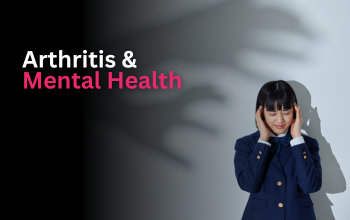News
Arthritis Research Canada responding to the COVID-19
March 16, 2020 (Vancouver, BC) –In light of the recent developments with the COVID-19 outbreak and the changing recommendations from the governments of BC and Canada, Arthritis Research Canada is carefully monitoring the information and implementing a number of protocols to ensure our volunteers, research participants, students, and staff are informed and protected according to the latest reports.
We are encouraging everyone to follow the advice being provided so that we may help prevent the spread of the virus across our communities and country. While we are concerned for all people, we are particularly so for those with auto-immune diseases and/or those who are immunosuppressed.
The following links provide the latest information from the Canadian government: https://www.canada.ca/en/public-health/services/diseases/coronavirus-disease-covid-19.html
The BC Centre for Disease Control:
http://www.bccdc.ca/health-info/diseases-conditions/covid-19
Additionally, as an organization dedicated to preventing arthritis and improving the quality of life of those affected by arthritis through research, we offer the following information and recommendations:
1) Are there concerns about taking anti-inflammatory medications?
- In light of observations that patients taking ibuprofen may have more severe respiratory illness when affected by COVID-19, the WHO recommends to avoid using ibuprofen to treat symptoms of COVID-19, and use acetaminophen instead to treat symptoms of fever or headaches. Taking this a step further, we recommend that patients using anti-inflammatory medications for their arthritis consider stopping them, even when asymptomatic for COVID-19, so that the medication is out of their system if they contract the illness. We recommend trying acetaminophen on a regular schedule up to the maximum recommended dose to control arthritis pain (e.g. up to two Tylenol for arthritis three times a day), and consider using NSAIDs only if there are no other options for pain control. https://www.sciencealert.com/who-recommends-to-avoid-taking-ibuprofen-for-covid-19-symptoms
- Examples of anti-inflammatory medications, also called NSAIDs, include ibuprofen (Advil), naproxen (Alleve), diclofenac (Voltaren), indomethacin (Indocid), celecoxib (celebrex), meloxicam (Mobicox). If you are unsure if your medication is an NSAID, contact your pharmacist.
2) What is known about the rate and severity of infection in patients with rheumatologic disease, especially those patients taking prednisone, DMARDs, biologics, or other immunosuppressive agents?
- Currently, there is no specific data on SARS-CoV-2 (the name of the virus responsible for COVID-19 disease) in patients with rheumatologic disease or immunosuppression. However, the medications listed do suppress the immune system and therefore increase the risk of having a more severe infection if patients come in contact with the virus. Therefore, people on these medications are considered at high risk and should take extra precautions to avoid contact and should seek medical attention if they have any symptoms, following the local directives for testing and accessing health care if symptomatic.
3) Should patients who are taking prednisone, DMARDs, biologics, or other drugs for their rheumatic diseases stop them?
- It is not recommended for people to stop their DMARD medications if they have no symptoms of COVID-19, as uncontrolled inflammation can be harmful for the body’s response to the virus. Stopping prednisone abruptly is also dangerous to one’s health, as the body’s own production of cortisol is suppressed.
- People should follow the usual practice of interrupting therapy during episodes of infection (i.e. if symptomatic or positive for COVID-19). Patients should talk to their rheumatologist or prescribing doctor prior to discontinuing any of their medications, or if they are uncertain what to do, e.g. if a close contact is positive for COVID-19. This is a complex decision based on assessment of other diseases and of the specific situation.
4) Are any pharmacologic measures (prophylactic or therapeutic) recommended?
- There are currently no prophylactic or therapeutic measures beyond supportive care recommended for this virus. Testing of potential therapies is underway in many countries, and work to develop a vaccine is also moving forward. However, it is unclear when these will be available.
5) What can patients do to protect themselves against contracting this disease?
- Patients who are immunosuppressed should avoid contact with people who are sick with COVID-19 or who are at high risk (e.g. returning from travel) and should limit the number of visitors to their homes.
- The BC CDC and other sources have underscored the importance of hand hygiene, with frequent and effective hand washing (for 20 seconds) with soap and water.
- One can use alcohol-based hand sanitizer if soap and water are not available.
- Evidence indicates paper towel drying is less likely to spread the virus than jet dryers.
- As important as hand washing is, avoiding to touch one’s face, mouth and eyes (i.e., all mucous membranes) and thoroughly washing hands before, if necessary to do so.
- Social distancing (i.e. staying at least 2 metres away from others), avoiding public spaces, public transit, working from home, etc., are all recommended measures for reducing the risk of contact with cases in the community. The main mode of transmission is through droplets from an infected person coughing and sneezing and airborne transmission.
- The routine wearing of masks by uninfected individuals is not encouraged. Only fit-tested N95 masks have been shown to prevent acquiring infection with other coronaviruses (e.g., SARS), and the use of other masks may give patients a false sense of security and lessen other protective measures. Patients suspected of having the virus should wear masks, however, in order to reduce transmission to others.
- It is recommended to frequently wash any commonly touched surfaces (for example: tables, doorknobs, light switches, handles, desks, toilets, faucets, sinks, steering wheels, keys) with household cleaners. Washing with household cleaners will remove the virus from surfaces. Using disinfectants after washing, gives the additional protection of killing viruses. Alcohol based products (> 70%), diluted bleach (1:9 dilution with water – never mix bleach with other cleaning products) and other EPA-registered household disinfectants can be used. Corona viruses are susceptible to soap and detergents. Further information is available on the BC CDC website.
- Washing clothing or linen items with the highest heat appropriate for the item and using the dryer is also an effective means of cleaning cloth items. The virus is susceptible to heat.
- Do not share food, drinks, and utensils, and do not eat from buffets, etc…
- Do not shake hands.
- When coughing or sneezing, cough or sneeze into a tissue or the bend of your arm, not your hand. Dispose of any tissues you have used as soon as possible in a lined waste basket and wash your hands afterwards.
6) What else can patients and their providers do?
- Patients should make sure they have received all appropriate vaccinations, including seasonal influenza, pneumonia, pertussis, and shingles vaccines. These will not prevent COVID-19, but will protect against those diseases, which if you had them (e.g., influenza) would likely make you more susceptible to more severe COVID-19 infection and vice versa.
- In addition, patients should keep ample stocks (e.g., one-month supply) of necessary medications on hand in case they are prevented from refilling prescriptions in a timely manner.
We hope that you will join Arthritis Research Canada in following the advisories communicated by the BC Medical Health Office, BC Centre for Disease Control and Ministry of Health, and the Canadian government.
Your health and welfare is very important to us and as we all deal with the COVID-19 situation that is currently unravelling before us, please know you are in our thoughts as we actively adapt to this pandemic.
Stay well.
ABOUT ARTHRITIS RESEARCH CANADA:
Arthritis Research Canada is the largest clinical arthritis research institution in North America. Our mission is to transform the lives of people living with arthritis through research and engagement. Led by world-renowned rheumatologist, Dr. John Esdaile, Arthritis Research Canada’s scientific team of over 100 are creating a future where people living with arthritis are empowered to triumph over pain and disability. Within British Columbia, Alberta and Quebec, Arthritis Research Canada is leading research aimed at arthritis prevention, early diagnosis, new and better treatment, and improved quality of life.
Marketing & Communications
Arthritis Research Canada
604-207-4002 or mc@arthritisresearch.ca




















































